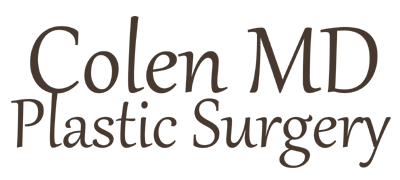How Safe Is Outpatient Plastic Surgery?
In my practice, I do a lot of labiaplasty and vaginoplasty procedures (as well as just about every other kind of plastic surgery operation). These are done on an outpatient basis. Consequently, I get questions frequently about just how safe outpatient surgery is. Let’s discuss that very important issue.
First, understand that there are thousands of plastic-surgery procedures done each year, most as outpatient procedures. Most of these are completed with no complications. However, there is no such thing as a risk-free surgical procedure.
To make sure that your outpatient procedure is as safe as possible, check whether your surgeon is an ASPS member. This will ensure she’s had a minimum of five years surgical training, with two of those in plastic surgery.
Also, make sure that the facility where the procedure will be done conforms to the safety guidelines established by the ASPS. Member surgeons will only operate in an accredited facility which has passed this rigid scrutiny.
Your chance of a complication-free procedure will also increase if you inform your surgeon of all drugs you’re currently taken. Also give her your complete medical history, particularly if you have a history of circulation disorders, any lung or heart ailments, or have had issues with blood clots.
Ask your surgeon about the personnel who will oversee your anesthesia and recovery. Make sure that the facility uses skilled, licensed persons in these capacities.
But by far, the best way to make sure that an outpatient procedure is as safe as possible is to be sure of your surgeon’s credentials. It’s true that good credentials don’t necessarily guarantee a successful procedure, however, they unquestionably increase the likelihood of such an outcome. We suggest you find a doctor certified by the ABPS (American Board of Plastic Surgery). This is considered the gold standard among plastic surgeons since it shows the surgeon has had exceptional formal training for his practice. An ABPS doctor has at least five years surgical residency training following medical school; two of these years are in plastic surgery. She has also passed in-depth reconstructive and cosmetic surgery exams. If you want to verify the certification status of your surgeon, visit www.abplsurg.org or www.abms.org.
Finally, by definition, an outpatient procedure does not have round-the-clock supervision of your recovery following your operation. For this reason, a successful outpatient procedure should have in place a system for recovery that will take this into account. Be sure to check with your surgeon to make sure that, at only a minimal cost, you are encouraged to return for a follow-up visit show she can check up on your progress. Also, during the days and weeks following the procedure, you should rest and only gradually return to your previous active lifestyle, in order to ensure a better recovery.
Outpatient surgery should not be viewed as any less viable than surgery which keeps you in the hospital for days or weeks. Instead, it’s a convenient, affordable way to have plastic surgery done–and can be just as effective as in-patient surgery as long as you make sure that proper safety measures are in place.
.

